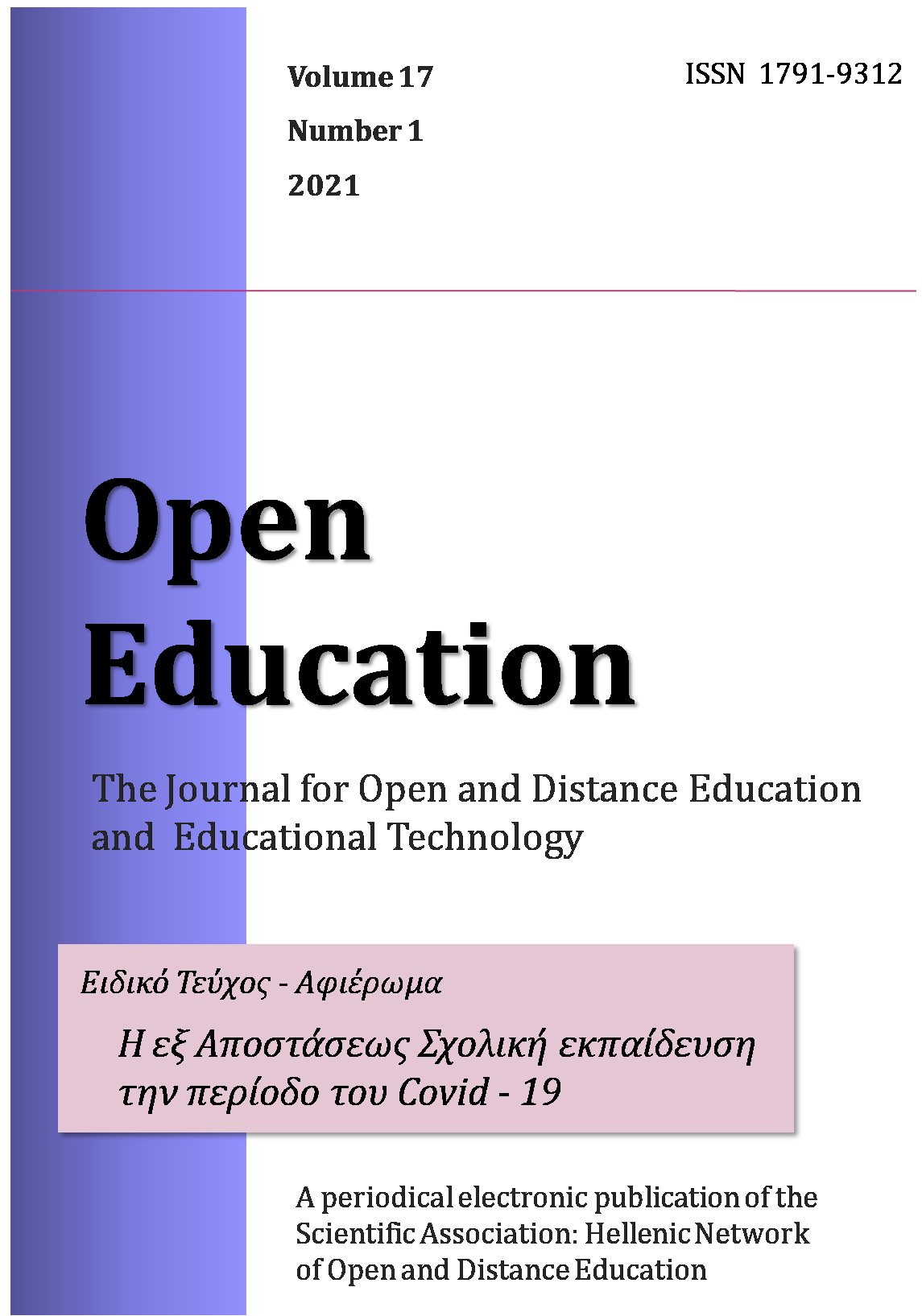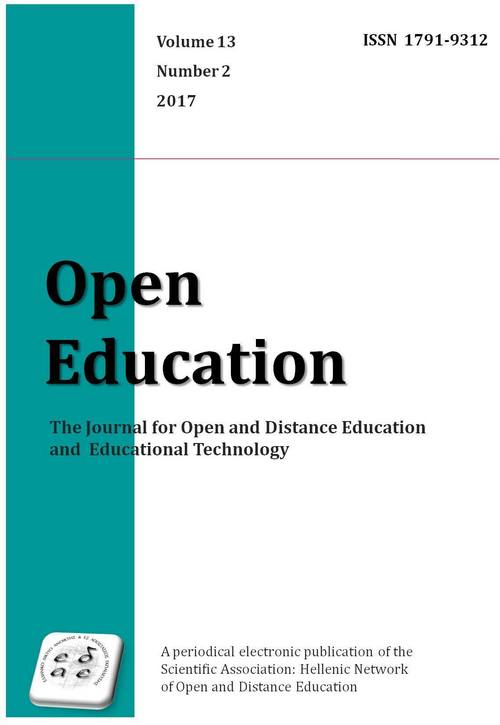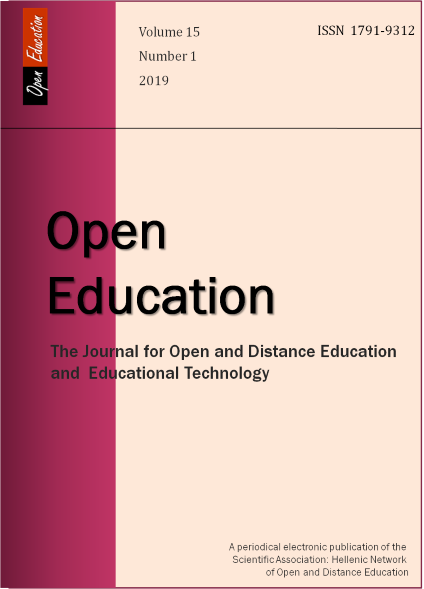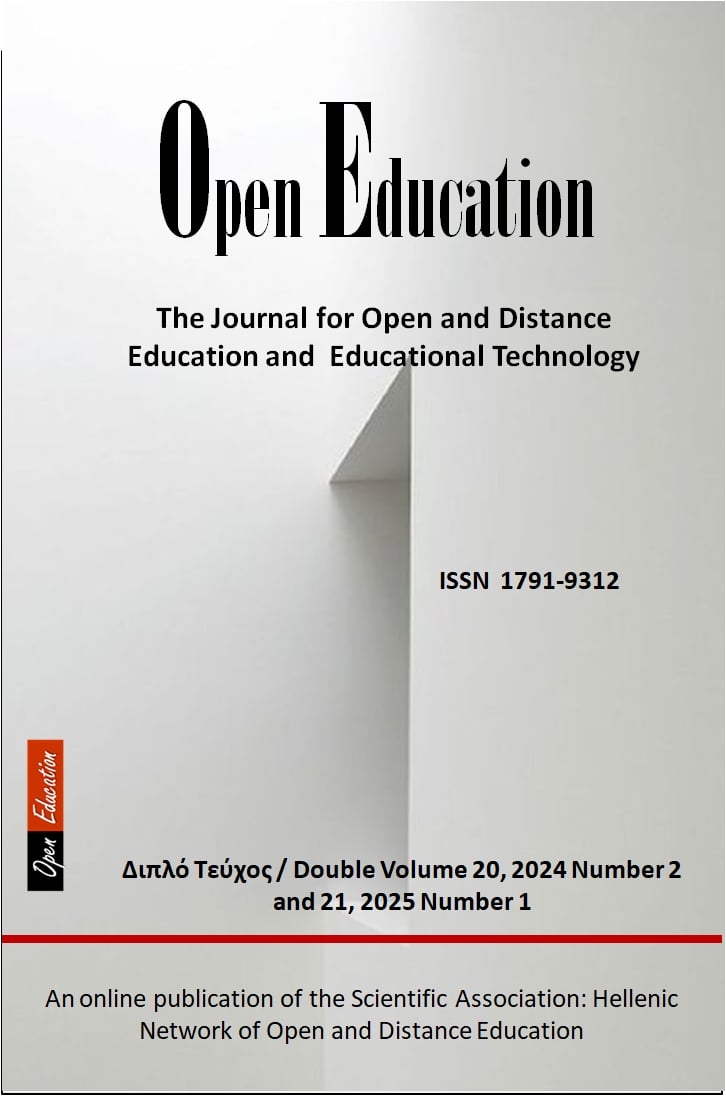Ο ρόλος της εκπαιδευτικής νευροεπιστήμης στη σύγχρονη (ομόχρονη) διαδικτυακή μάθηση

Περίληψη
Λεπτομέρειες άρθρου
- Πώς να δημιουργήσετε Αναφορές
-
- Τεύχος
- Τόμ. 17 Αρ. 1 (2021)
- Ενότητα
- Μέρος πρώτο / Section 1





